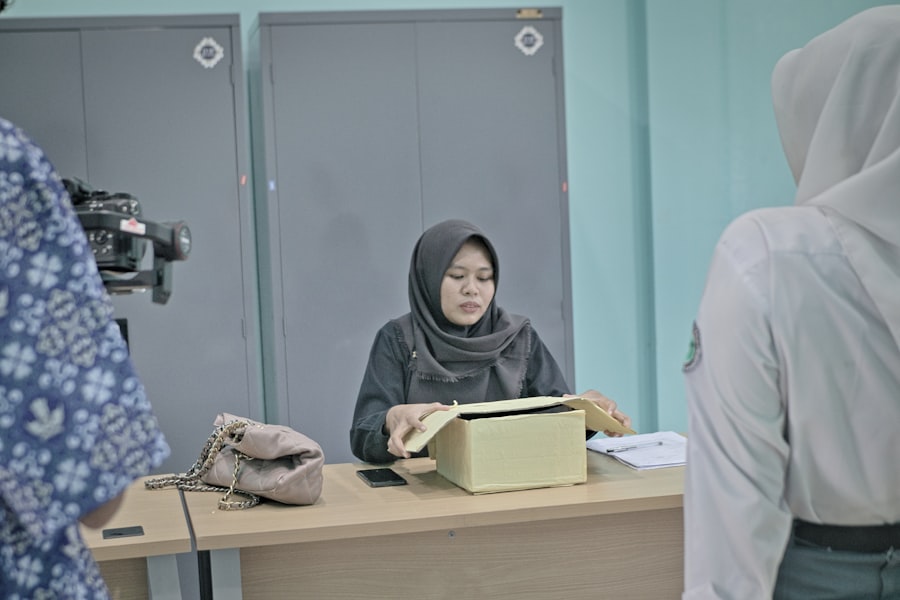In the realm of clinical research, the role of a Clinical Trial Research Coordinator (CTRC) is pivotal. These professionals serve as the linchpin in the intricate machinery of clinical trials, ensuring that studies are conducted efficiently, ethically, and in accordance with regulatory standards. Their importance cannot be overstated, as they bridge the gap between the research team and the participants, facilitating communication and ensuring that the trial’s objectives are met.
The success of a clinical trial often hinges on the effectiveness of the CTRC, who is responsible for managing various aspects of the study, from recruitment to data collection. The significance of a CTRC extends beyond mere administrative tasks; they are integral to maintaining the integrity of the research process. By overseeing the day-to-day operations of clinical trials, they ensure that protocols are followed meticulously, which is essential for producing reliable and valid results.
Their expertise not only enhances the efficiency of the trial but also fosters trust among participants, who rely on these coordinators for guidance and support throughout their involvement in the study. In an era where clinical trials are increasingly complex and multifaceted, the role of the CTRC has become more critical than ever.
Key Takeaways
- Clinical Trial Research Coordinators play a crucial role in managing and overseeing clinical trials to ensure their success.
- They are responsible for coordinating study activities, maintaining compliance, and ensuring patient safety throughout the trial.
- Effective communication and collaboration with healthcare professionals are essential for smooth trial operations.
- Coordinators handle data collection, analysis, and ensure adherence to regulatory and ethical standards.
- Their work significantly impacts patient outcomes by providing education, support, and maintaining high-quality trial conduct.
Responsibilities and Duties of a Clinical Trial Research Coordinator
The responsibilities of a Clinical Trial Research Coordinator are diverse and multifaceted, encompassing a wide range of tasks that are essential for the smooth operation of clinical trials. One of their primary duties is to assist in the development and implementation of study protocols. This involves collaborating with principal investigators to design studies that meet scientific objectives while adhering to regulatory requirements.
The CTRC must possess a thorough understanding of the trial’s goals and methodologies to effectively manage its execution. In addition to protocol development, CTRCs are responsible for participant recruitment and retention. This task requires not only an understanding of the target population but also strong interpersonal skills to engage potential participants and address their concerns.
They often conduct initial screenings to determine eligibility, explain the study’s purpose, and obtain informed consent. Furthermore, they play a crucial role in maintaining participant engagement throughout the trial, ensuring that individuals remain committed to completing their involvement. This aspect of their role is vital, as high dropout rates can compromise the validity of study results.
Communication and Collaboration with Healthcare Professionals

Effective communication is a cornerstone of the Clinical Trial Research Coordinator’s role. They must liaise with various stakeholders, including principal investigators, clinical staff, and regulatory bodies, to ensure that everyone involved in the trial is informed and aligned with its objectives. This requires not only clarity in conveying information but also active listening skills to address any concerns or questions that may arise during the trial process.
The ability to foster open lines of communication can significantly enhance collaboration among team members, ultimately leading to more successful outcomes. Collaboration with healthcare professionals is another critical aspect of a CTRC’s responsibilities. They often work closely with physicians, nurses, and other clinical staff to coordinate patient care and ensure that all aspects of the trial are executed seamlessly.
This collaboration extends to training healthcare personnel on specific protocols related to the trial, ensuring that they understand their roles in supporting participants. By cultivating strong relationships with healthcare professionals, CTRCs can facilitate a more integrated approach to patient care within the context of clinical research.
Ensuring Patient Safety and Compliance
| Metric | Description | Target Value | Current Value | Frequency of Measurement |
|---|---|---|---|---|
| Medication Error Rate | Percentage of medication errors reported per 1,000 prescriptions | Less than 1% | 1.2% | Monthly |
| Patient Fall Rate | Number of patient falls per 1,000 patient days | Less than 2 | 1.8 | Monthly |
| Hand Hygiene Compliance | Percentage of staff adhering to hand hygiene protocols | 95% | 92% | Weekly |
| Incident Reporting Rate | Number of safety incidents reported per 100 patients | High reporting encouraged | 15 | Monthly |
| Compliance with Safety Protocols | Percentage adherence to established patient safety protocols | 100% | 97% | Quarterly |
| Staff Training Completion | Percentage of staff completing mandatory patient safety training | 100% | 98% | Annually |
| Patient Identification Accuracy | Percentage of correct patient identification before procedures | 100% | 99.5% | Daily |
One of the foremost responsibilities of a Clinical Trial Research Coordinator is to ensure patient safety throughout the duration of a clinical trial. This involves monitoring participants for adverse events and ensuring that any issues are promptly reported and addressed according to established protocols. The CTRC must be vigilant in observing participants’ reactions to treatments or interventions, as their well-being is paramount.
This commitment to safety not only protects participants but also upholds the ethical standards of clinical research. Compliance with regulatory guidelines is another critical aspect of a CTRC’s role. They must be well-versed in Good Clinical Practice (GCP) guidelines and other relevant regulations set forth by governing bodies such as the Food and Drug Administration (FDA) or institutional review boards (IRBs).
This knowledge enables them to ensure that all trial activities are conducted in accordance with legal and ethical standards. Regular audits and inspections may occur during a trial, and it is the responsibility of the CTRC to maintain accurate records and documentation that demonstrate compliance with these regulations.
Data Collection and Analysis
Data collection is a fundamental component of clinical trials, and Clinical Trial Research Coordinators play a vital role in this process. They are responsible for gathering data from various sources, including participant assessments, laboratory results, and clinical observations. This data must be collected systematically and accurately to ensure its reliability for analysis.
The CTRC must be meticulous in their approach, as even minor errors in data collection can lead to significant consequences for study outcomes. Once data has been collected, the CTRC may also be involved in preliminary data analysis or preparation for statistical analysis by biostatisticians. This may include organizing data into databases or spreadsheets, ensuring that it is clean and ready for further examination.
Their understanding of statistical principles can aid in identifying trends or anomalies within the data that may warrant further investigation. By actively participating in data management, CTRCs contribute to the overall integrity of the research findings.
Patient Education and Support

Patient education is a critical function performed by Clinical Trial Research Coordinators. They are tasked with providing participants with comprehensive information about the study, including its purpose, procedures, potential risks, and benefits. This educational component is essential for obtaining informed consent and ensuring that participants have realistic expectations about their involvement in the trial.
The ability to convey complex medical information in an understandable manner is crucial for fostering participant trust and engagement. In addition to education, CTRCs offer ongoing support throughout the trial process. They serve as a point of contact for participants who may have questions or concerns about their participation or any side effects they may experience.
This support can significantly enhance participant satisfaction and retention rates, as individuals feel valued and cared for during their involvement in research. By being accessible and responsive to participant needs, CTRCs help create a positive experience that encourages continued participation.
Adherence to Regulatory and Ethical Guidelines
Adherence to regulatory and ethical guidelines is paramount in clinical research, and Clinical Trial Research Coordinators are at the forefront of ensuring compliance with these standards. They must stay informed about evolving regulations from agencies such as the FDA or European Medicines Agency (EMA) and implement necessary changes within their trials. This requires continuous education and training to remain current with best practices in clinical research.
Moreover, ethical considerations are deeply embedded in the work of a CTRThey must advocate for participants’ rights and welfare while balancing scientific objectives with ethical obligations. This includes ensuring that informed consent processes are thorough and transparent, allowing participants to make educated decisions about their involvement in research. By prioritizing ethical conduct, CTRCs contribute to maintaining public trust in clinical research as a whole.
The Impact of a Clinical Trial Research Coordinator on Patient Outcomes
The influence of a Clinical Trial Research Coordinator on patient outcomes is profound and multifaceted. Their role directly impacts not only the operational success of clinical trials but also the experiences and health outcomes of participants involved in these studies. By ensuring that trials are conducted efficiently and ethically, CTRCs help facilitate advancements in medical knowledge that can lead to improved treatments and therapies for various conditions.
Furthermore, by fostering strong relationships with participants through education and support, CTRCs enhance patient engagement and adherence to study protocols. This engagement can lead to more accurate data collection and ultimately more reliable results that reflect real-world patient experiences. As clinical trials continue to evolve in complexity, the contributions of Clinical Trial Research Coordinators will remain essential in bridging gaps between research objectives and patient care, ultimately shaping the future landscape of healthcare innovation.




